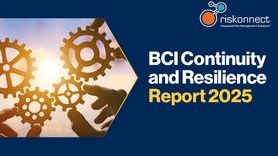Public Transport operators face threat as commuters choose to travel by car

As workers return to the office, the trends in commuter behavior show that workers now lean in favor of car journeys over trains. Figures from the Traveler Sentiment Survey found that more than half of respondents were uncomfortable using buses and subways.
Figures suggest COVID 19 has affected the attitudes towards travel around the globe. A survey conducted across nine countries showed that over half of respondents were uncomfortable getting on public transport, and nearly a quarter of respondents were expected to drive or use rental cars more than before.
Growing concerns around health and safety are the primary reasons for the migration, along with successes of remote/homeworking and teleconferencing, which has allowed companies to connect staff even without being in the office. e.
Working from home is also a growing option for many workers, and companies who are shutting offices in the droves and opting for a hybrid or permanent working from home models are also contributing to the loss in passengers.
This new working model is having a negative impact on public transport operators around the globe, and the World Economic Forum (WEF) predict full recovery within transport to pre pandemic levels by mid-2022.
According to the WEF demand for public transportation declined during the pandemic by as much as 75% in Washington, Copenhagen and Buenos Aires. Over in Washington, the transit authority projected over $52 million in losses due to COVID 19 affecting ‘lifestyle changes, waived bus fares and the economic downturn’.
In Sabah and Labuan, 325 transport operators received financial assistance from the government to ease the burden of last year’s travel restrictions. In late 2020, public transport in Sabah were operating at half passenger capacity as a preventative measure to curb the spread of the virus and inter district travel was banned from October 3 – 1th 2020. This affected drivers and transport operators negatively who are now receiving aid in light of the losses they have faced.
In the first week of September, travel on UK National Rail services and the London underground were down 55%. UK Government data shows car journeys have increased reaching pre-pandemic levels and are expected to increase even further this month. Director general of the Rail Delivery Group (RDG) said that the decline in commuters not only affected the train groups, but also the small and large businesses who deliver food, drink, shopping and entertainment.
Independent bars, cafes and local businesses who depend on a large majority of domestic customers commuting for work or leisure will surely be affected, as their customer numbers would drop due to the decrease of footfall going through stations and the high street.










































